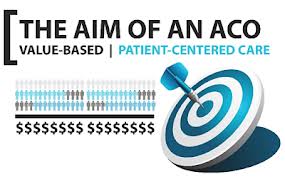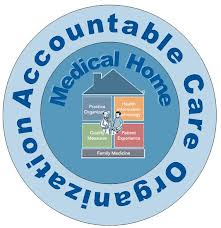Summary: What initiatives is the Center for Medicare and Medicaid Services (CMS) currently exploring in terms of  Accountable Care Organizations (ACO)?
Accountable Care Organizations (ACO)?
Accountable Care Organizations is one of the current buzz words associated with the Affordable Care Act which was setup approved in 2010 and has provisions becoming effective through 2015. An Accountable Care Organization, according to CMS, is “a group of doctors, hospitals, and other health care providers who come together voluntarily to give coordinated high quality care to the Medicare patients they serve. When an ACO succeeds in both delivering high-quality care and spending health care dollars more wisely, it will share in the savings it receives for the Medicare program.” CMS is a department under the jurisdiction of the US Department of Health and Human Services (HHS).
CMS is an extremely active department with a vast amount of responsibility for Medicare and Medicaid. The Affordable Care Act sets forth many provisions that are specific to Medicare and Medicaid in an attempt to provide affordable accessible care to as many individuals as possible. As such, there are currently several demonstrations in process which are specific to Accountable Care Organizations.
Pioneer ACO Model
This model is applicable to health care organizations which are already well-versed in coordinating care across a multitude of settings. The model provides an avenue to fast-track moving away from shared savings to population based payment. There are currently 32 Pioneer ACOs in the US. In general there is both a higher risk and higher level of shared savings with this model than the Medicare Shared Savings Program. This program is a 3 year model which was effective January 2012.
Advance Payment ACO Model
This model is designed for physician-based and rural providers who have come together voluntarily to give coordinated high quality care to the Medicare patients they serve. Selected participants will receive upfront and monthly payments, which can be used to make investments in the care coordination infrastructure. Currently, there are 35 participating organizations, the model was implemented effective April 2012 and is an ongoing initiative.
Shared Savings Program
This program is designed to facilitate coordination and cooperation among providers to improve the quality of care for Medicare Fee-For-Service beneficiaries and reduce unnecessary costs. Those organizations which are eligible include: providers, hospitals, and suppliers. The program will reward ACOs that lower growth in healthcare costs while meeting performance standards on quality and putting the patient first.
Nursing Home Value-Based Purchasing Demonstration
This model is used specifically for nursing homes to determine if they meet certain quality measures. Incentive payments are given to those that  either perform the best or make the most improvement. Thus far, 182 nursing homes have taken part of this model and the model has only been applied in 3 states: Arizona, New York, and Wisconsin. The effective date was July 2009 and is an ongoing demonstration.
either perform the best or make the most improvement. Thus far, 182 nursing homes have taken part of this model and the model has only been applied in 3 states: Arizona, New York, and Wisconsin. The effective date was July 2009 and is an ongoing demonstration.
Medicare Health Care Quality Demonstration
The focus points of this demonstration are to improve patient safety, enhance quality, increase efficiency, and reduce scientific uncertainty and the unwarranted variation in medical practice that results in both lower quality and higher costs. To date, there are only 4 participating organizations and is scheduled to last 5 years, with the effective date of February 2010.
Comprehensive ESRD Initiative
This initiative was designed to identify, test, and evaluate new ways to improve care for Medicare beneficiaries with End-Stage Renal Disease (ESRD). This is a brand new initiative effective February 2013. CMS is currently accepting letters of intent.
Rural Community Hospital Demonstration
This program is testing the feasibility and advisability of cost based reimbursement for small rural hospitals that are too large to be considered Critical Access Hospitals. The current demonstration was effective May 2011 and is approved for 5 years. There are currently 23 participating hospitals in 20 states. Participation has been up and down for this particular demonstration.
Private, For-Profit Demo Project for the Program of All-Inclusive Care for the Elderly (PACE)
This demonstration compares the costs, quality and access to services provided by for-profit entities to those of nonprofit PACE providers. The demonstration began in 2008, has 5 providers participating and is approved through December 2013.
About Us
BHM Healthcare Solutions – a healthcare management consulting firm
1-888-831-1171
